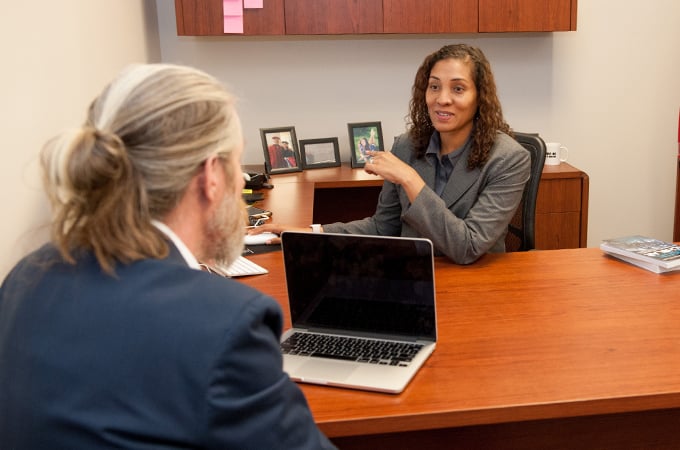University of Redlands has been selected as one of five educator preparation programs to join the new California Educator Preparation Innovation Collaborative (CalEPIC).
As a member of this new collaborative, University of Redlands has been awarded a grant of $300,000 to build partnerships in fieldwork as well as in the development and implementation of sustainable data systems.
“CalEPIC means the University of Redlands will work in cooperation with partner universities and K-12 districts to further strengthen our ability to innovatively address the teacher shortage in California, while continuing our mission-centered work of preparing diverse educators to serve in diverse communities,” says Mario Martinez, who is the Naslund Endowed Dean of the School of Education.
“CalEPIC’s goals align with the School of Education’s mission and brings together department leadership, staff, and faculty with University and district partners to fully scale equitable practices and sustainable initiatives,” adds Professor Nicol R. Howard, who is principal investigator for the grant.
In addition to Howard and Martinez, School of Education core transformation team members include Director of the Office of Student Success Yessenia Yorgesen, Visiting Associate Professor Stephanie Quan-Lorey, and Executive Assistant Heather Lambeth. They will work alongside Chair of the Department of Teaching and Learning Alayne Sullivan; Program Coordinators Brian Charest, Kimiya Maghzi, and Greg Hamilton; and Department of Teaching and Learning faculty.
CalEPIC—made possible with the generous support of the Bill & Melinda Gates Foundation—was developed by the Thompson Policy Institute on Disability at Chapman University. The network of innovative educator preparation programs—which, in addition to the University of Redlands, includes Claremont Graduate University, Loyola Marymount University, Saint Mary’s College of California, and University of San Francisco—will work to build the capacity of California educators to support equity, diversity, inclusivity, and the whole child.
Teacher candidates in the five CalEPIC partner programs will center their work on anti-racist practices, social-emotional learning, culturally and linguistically relevant teaching, and the inclusion of students with disabilities. CalEPIC’s focus areas include:
- Promoting anti-bias and anti-racist practices across all credential areas;
- Considering the intersections of disability, race, language, and socioeconomic status, especially as it relates to special education and the school-to-prison pipeline;
- Ensuring students with disabilities, including those with extensive support needs, are addressed across all credential types; and
- Embedding Universal Design for Learning and Social-Emotional Learning in the curriculum
Through professional development and technical assistance programs, CalEPIC and its partner teacher education programs will support with data analytics to inform how educator preparation programs ready teachers to create and sustain school environments where all students thrive. The goal is to ensure a diverse and robust teaching workforce that meets the needs of ALL students, including Black, Latinx, LGBTQIA+, and those students experiencing poverty, as well as students with disabilities.
“Through our work with CalEPIC, we will be able to continue building a strong pool of university supervisors and cooperating teachers whose views are aligned with the Department of Teaching and Learning's EQUITY Conceptual Framework,” says Quan-Lorey.
In partnership with CalEPIC, the University of Redlands’ School of Education will strive to increase equitable access and opportunities for all California students. Data-informed decision-making will be central to meeting the project’s goals. “Working with our CalEPIC cohort will be a wonderful opportunity for us to examine our data gathering and systems to glean ideas and best practices from our peers,” comments Lambeth.
Yorgesen adds, “CalEPIC will give us the opportunity to nurture meaningful relationships with our district partners that will ultimately lead to potential careers for our students.”
Learn more about the University of Redlands School of Education.






